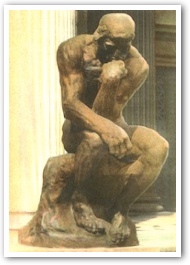Dissolution of bioethics council is a loss for America
- COLLEEN CARROLL CAMPBELL
Last month, President Barack Obama quietly disbanded the President's Council on Bioethics, a deliberative body whose changing cast of erudite and ideologically diverse members had spent the past eight years thinking through today's toughest moral questions.
 |
Members received only one day's notice of the council's dissolution, forcing them to cancel a planned meeting and leave unfinished several major reports that were due to be released soon.
Their abrupt dismissal received little press, aside from a New York Times article that noted Obama's reason for dismantling the council. According to White House press officer Reid Cherlin, the council was "a philosophically leaning advisory group" and Obama wants a new bioethics commission that focuses less on discussion and more on forming consensus around "practical policy options." As University of Wisconsin law professor and Obama ally Alta Charo explained, the old council "seemed more like a public debating society," whereas Obama's new one will help him form what the Times described as "ethically defensible public policy."
It's ironic that a president often hailed as a sort of philosopher-king regards the discussion of philosophical questions as a waste of time for a bioethics commission. And it's odd that a leader who talks incessantly about the importance of listening to diverse viewpoints found so little to like about a council that was one of the few vehicles left in America for intelligent, civil public discourse about weighty moral questions.
While many politicians and pundits shout past each other when discussing such issues as cloning or end-of-life care, the council's members engaged each other's ideas with respect and offered an elevated model of debate for our sound-bite society. They raised profound questions about science and technology that too few Americans consider, much less discuss in depth with principled, thoughtful opponents. Gathering some of America's brightest scholars from across disciplines, the council tackled everything from the ethics of genetic screening for newborns to the moral dilemmas posed by our struggle to care for aging loved ones.
It's true that council members frequently debated and disagreed. That was, in many ways, the point. President George W. Bush created the council in 2001 not to rubber-stamp his policies -- roughly half the members he appointed to the newly formed council disagreed with his position on embryonic stem-cell research -- but to advise him "on ethical issues related to advances in biomedical science and technology" and to provide "a forum for a national discussion" and education about bioethical issues.
Under the leadership of the University of Chicago's Dr. Leon Kass and, later, Georgetown University's Dr. Edmund Pellegrino, the council did just that. Its probing reports and public discussions reminded Americans that when it comes to evaluating the moral implications of scientific advances, science does not have all the answers. And the fact that we can do something doesn't always mean that we should.
It's ironic that a president often hailed as a sort of philosopher-king regards the discussion of philosophical questions as a waste of time for a bioethics commission. |
The council had its critics and sometimes made waves. The latest came in March, when 10 of its 18 members publicly criticized Obama's decision to lift restrictions on federal funding for research that destroys human embryos. That criticism, and Obama's reluctance to draw more criticism when his administration unveils new National Institutes of Health guidelines for federal funding of embryo-destructive research this month, may explain the president's eagerness to disband the council immediately, rather than wait until its charter would have expired in September.
Obama's desire to see his policies backed by expert "consensus" more likely will be realized with a new commission composed of like-minded political liberals steeped in utilitarianism than with the brainy, diverse and unpredictable crew that populated the now-defunct council. Ensuring uniformity of thought among one's ethical advisers may make the president's job easier, but it will do little to benefit the diverse nation that he serves.
 This is J. Fraser Field, Founder of CERC. I hope you appreciated this piece. We curate these articles especially for believers like you.
This is J. Fraser Field, Founder of CERC. I hope you appreciated this piece. We curate these articles especially for believers like you.
Please show your appreciation by making a $3 donation. CERC is entirely reader supported.

Acknowledgement
Colleen Carroll Campbell. "Dissolution of bioethics council is a loss for America." St. Louis Post-Dispatch. (July 2, 2009).
Reprinted with permission of the author, Colleen Carroll Campbell.
The Author
 Colleen Carroll Campbell is an author, print and broadcast journalist and former presidential speechwriter. She is the author of My Sisters the Saints: A Spiritual Memoir and The New Faithful: Why Young Adults Are Embracing Christian Orthodoxy. Her website is here.
Colleen Carroll Campbell is an author, print and broadcast journalist and former presidential speechwriter. She is the author of My Sisters the Saints: A Spiritual Memoir and The New Faithful: Why Young Adults Are Embracing Christian Orthodoxy. Her website is here.



